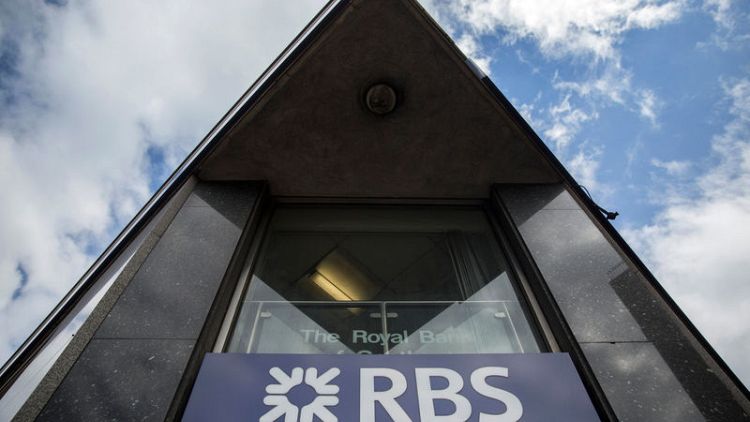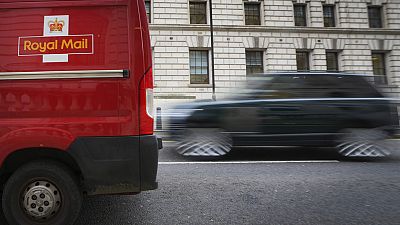By Emma Rumney and Sinead Cruise
LONDON (Reuters) - The British government should go ahead and sell more shares in state-backed Royal Bank of Scotland <RBS.L>, bankers and industry experts said, even though it would likely mean a big loss to taxpayers.
Media reports on Monday said the government could sell a 10 percent stake in RBS as soon as this week, sparking criticism from opposition politicians and some members of the public on Twitter.
Neither the Treasury nor RBS confirmed the reports.
Chancellor Philip Hammond has said he wants to start selling down the government's 70 percent stake in the bank some time before April 2019. The government sold some shares in 2015 and took a 1.1 billion pound loss.
If a new sale goes ahead this week it would likely mean a loss to the taxpayer of around 2 billion pounds based on RBS's share price on Tuesday, which was down 3.3 percent at 279 pence as banks across Europe were hit by political turmoil in Italy.
But two equity capital markets bankers said that the window was still open for a possible RBS share sale despite nervousness over Italy, but it might now mean a smaller stake would be offered.
One top 20 RBS shareholder said both his company and other funds would be interested in participating in the sale to gain access to RBS shares.
"It's so stuffed with capital that people just know there is a lot coming out, so I think probably people want to get in early," he said.
RBS is expected to return excess capital to shareholders at some stage now it has agreed a $4.9 billion settlement for crisis-era misconduct with U.S. authorities. The settlement removed a major obstacle for RBS to resume dividends and for the government to resume selling its holding in the bank.
The bank could stimulate investor interest in the potential sale by giving investors more specifics on its dividend policy at its annual shareholder meeting in Edinburgh on Wednesday, John Cronin, banks analyst at Goodbody, said.
He said an early sale would allow the government to capitalise on a rise in RBS's shares - which are up around 8 percent since March. He warned that a European Union summit later in June could hurt UK equities in the absence of an agreement on the Irish border after Brexit.
A HEFTY LOSS
The government took a 70 percent stake in RBS when it was forced to rescue the bank for 45.5 billion pounds at the height of the financial crisis.
For RBS, the sale would mark another milestone on its decade-long recovery, in which the bank has shrunk its balance sheet, cut back its global activities and reduced costs.
But RBS's shares are well below the 502 pence level where the government made its initial and largest capital injection during the crisis.
A sale of a 10 percent RBS stake at 502 pence per share would be worth almost 2 billion pounds more than a sale at the current share price.
The loss for taxpayers would be even greater when taking into account a break-even price of 625 pence per share estimated by the National Audit Office, which includes the cost of financing.
The government would also have to offer the shares at a discount to attract buyers.
"All further sales of RBS shares should be halted, and the bank reorganised under public control," John McDonnell, finance policy chief for the opposition Labour Party, said in a statement.
But Peter Hahn, a professor of banking at the London Institute of Banking and Finance, said that trying to recoup the taxpayers' investment in full was "absurd", given that RBS had slimmed down from one of the biggest banks in the world by assets to a much simpler, UK-focused lender.
"It's time to stop looking at it as a recovery of the money that went in and try to optimise the taxpayers' asset and realise it as soon as possible."
(Additional reporting by Dasha Afanasieva and Ben Martin. Editing by Jane Merriman)



